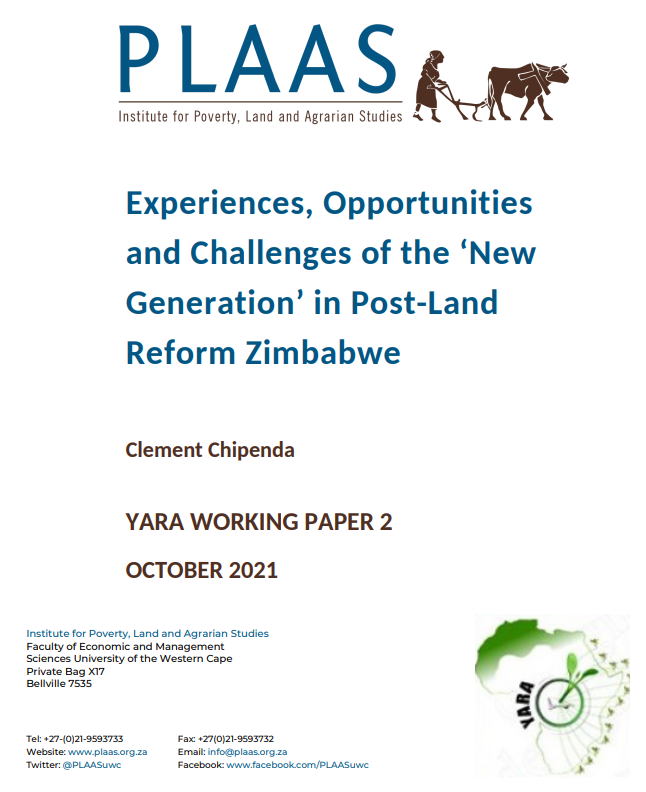Experiences, Opportunities and Challenges of the ‘New Generation’ in Post-Land Reform Zimbabwe

What have been the experiences, opportunities, and challenges of social reproduction and accumulation by the second generation (or children) of resettled farmers in Zimbabwe’s ‘new’ farming areas? This is the central research interest of the paper which explores the current situation of the ‘new’ generation in the farming areas created under the fast-track land reform programme (FTLRP). Based on a critical, nuanced, and empirically grounded analysis of the life histories of young smallholder farmers, the paper interrogates their experiences, challenges, and future prospects as principal landowners in the country’s reconfigured agrarian structure. The paper is informed by field-based evidence gathered in Goromonzi District (Zimbabwe) and it employs an interpretive research paradigm and a qualitative research approach that it uses to interrogate the situation of young farmers. It shows that to some extent, redistributive land reform has had discernible production, redistribution, and social reproduction outcomes which are positively impacting the lives of the new generation.
The central evidence supporting the position of the paper is that there is the generational transfer of land which has allowed for the continued opening up of the previously enclosed means of production. Young people with access to land are now able to engage in diverse land-based livelihood activities which are slowly transforming their lives, allowing them to accumulate productive and non-productive assets while ensuring food security. In a context where the FTLRP has for years been subjected to much polemical and antagonistic debate, the paper shows that from a youth and land nexus, there are important lessons that can be learned from it, especially for countries in the global south confronted by the ‘youth question.’
Abstract based directly on original source.


Comments